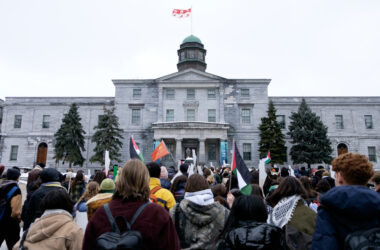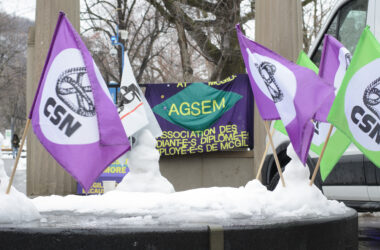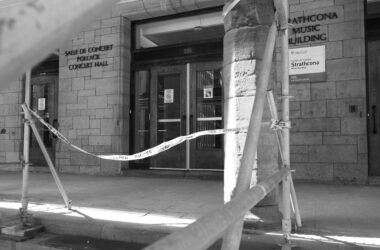Montreal is a city characterized by its liveliness and natural beauty. The numerous events that take place on the island, such as the Nuits d’Afrique and Jazz Fest music festivals highlight the city’s diversity and boast its reputation as a tourist hotspot. Most enticing, however, is that Montreal is composed of a mixture of people from various backgrounds. But despite increasingly inflammatory rhetoric from the Bloc Québécois and attempts to distance the province from Montreal’s diversity and to characterize Quebec as monocultural––there is not one type of Quebecois identity.
Yves-François Blanchet, the leader of the Bloc Québécois, worries that Montreal is becoming disconnected from the rest of Quebec. He even goes as far as to claim that there are “two Quebecs,” where Montreal is an undesirable multilingual city, and the rest of Quebec is its “generous host society.” This rhetoric attacks not only English speakers, but speakers of the hundreds of other languages found on the island. From Inuktitut to Tagalog to Tamil, Montreal hosts a vast array of written and spoken languages. This multiplicity makes the city so appealing to both tourists and immigrants.
Blanchet believes that the history, language, values, and culture of Quebec are becoming marginalized––a severely misguided view. Though Montreal is part of Quebec, it does not represent Quebec as a whole—nor should it. Most non-French speakers are concentrated within Montreal, while the rest of the province remains predominantly French-speaking. As for Blanchet’s concerns about the loss of Quebec’s culture, a question arises: Who defines Quebec’s culture?
Blanchet makes a shockingly contradictory statement when he insists that Quebec should be “one culture […] with all its diversity.” How would it be possible for the province to consist of one culture and simultaneously be diverse? Quebec’s culture should not be a single entity, but rather a compilation of all the cultures that are present within it. Newcomers would stand more comfortably and proudly within their Quebecois identity if it honoured who they are.
Blanchet further stated that there are two Montreals divided between the East and the West of the island. Linguistic and cultural variation is undeniable among the inhabitants of Montreal, and an incredibly enriching aspect of the city. Blanchet’s assertion is yet another attempt to pit Montrealers against each other. This irony comes from Blanchet being disturbed by a perceived separation between two parts of Montreal and between Montreal and the rest of Quebec, yet he is content with the notion of Quebec being separate from the rest of Canada.
In Blanchet’s mind, it is catastrophic for Montreal to be distinct from the rest of the province, but it is perfectly acceptable for Quebec to be distinct from Canada. The separatist movement in Quebec often has exclusionary undertones. This way of advocating for a culture composed of similar people with similar ideologies ultimately scares away those who choose not to assimilate. Blanchet continues to fabricate this narrative as a means to perpetuate his ulterior motive: Conformity to a poorly defined “Quebecois culture” and the erasure of cultural diversity on the island of Montreal—and in the province of Quebec in its entirety.
Promoting multilingualism will allow Montreal’s vibrancy to carry on and will strengthen acceptance within the city. We cannot allow political leaders to interfere with this goal and we, as Montrealers, must continue to promote and fight for not only diversity but also inclusion in a society where political discourse fosters a culture of exclusion and separation. It is our responsibility to push back against the cultural and linguistic hierarchy that our leaders establish and to bring forth a new model where all individuals with their respective languages and cultures are recognized and valued as Quebecers in their own right.









